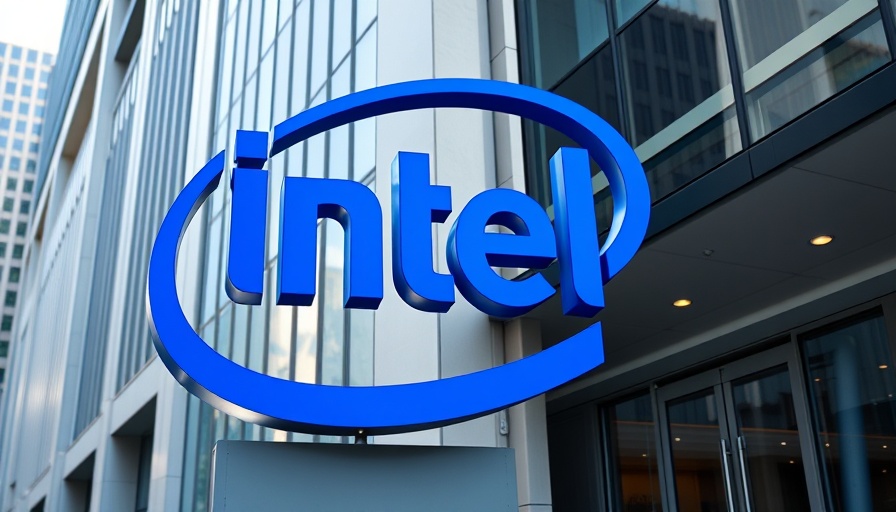
The Significance of the $8.9 Billion Intel Investment
The recent announcement of a staggering $8.9 billion investment by the U.S. government in Intel has drawn attention from business circles and tech enthusiasts alike. With a 9.9% equity stake in one of the world’s leading chip manufacturers, this deal is not just about money—it's about strategic positioning in a rapidly evolving technological landscape. President Trump has framed this investment as a pivotal move to revitalize Intel and bolster American manufacturing within the semiconductor industry, which has faced challenges amid rising competition globally, particularly from China.
Why This Investment Matters
For entrepreneurs and small business owners, understanding the implications of this investment is crucial. The U.S. government’s involvement in parallel public-private partnerships can signal the importance of innovation and stability in critical sectors like technology. The decision to provide Intel with substantial funding under the 2022 CHIPS Act underscores a broader governmental strategy to reduce dependency on foreign markets, especially as supply chain disruptions have become increasingly common.
Reactions from Experts: Support and Skepticism
While some experts hail the investment as a lifeline for Intel, others express skepticism regarding its structure. Brian Quinn, a professor at Boston College Law School, has voiced concerns over the choice of common over preferred stock. He highlights that preferred stock could provide better returns to taxpayers through mandatory dividends. Similarly, Timothy Meyer from Duke University points out that this level of government intervention is unprecedented outside of a financial crisis, emphasizing that the focus should be on the U.S. market share as opposed to merely bailing out the company.
AI's Role in Shaping the Future of Businesses
As this deal evolves, the integration of AI tools in business operational strategies could play a significant role in maximizing outcomes. Increasingly, small business owners are turning to AI automation to streamline processes and improve efficiencies. For those exploring the best AI apps for business owners, utilizing AI can empower startups to compete more effectively in the market. AI business ideas for 2025 will undoubtedly pivot as more companies gravitate toward innovative technologies, especially in the wake of substantial public funding.
Understanding the Landscape of AI Tools
The relationship between government investments and technological innovation can provide valuable lessons. For instance, entrepreneurs might consider the potential of implementing AI tools tailored for their industry. Exploring how to use AI in small businesses is becoming fundamental for growth and competitiveness. As businesses harness these technologies, they can expect to capitalize on evolving market demands and improve customer engagement.
Future Predictions: A Changing Landscape
Looking ahead, the anticipated shift in the semiconductor industry due to this investment could lead to more businesses exploring partnerships with technology firms. The challenge lies in navigating these changes while remaining innovative and responsive to market trends. Entrepreneurs must stay informed about advancements and how they can adapt their strategies accordingly. As the government pushes for a more robust tech industry, smaller businesses that align their goals with these developments may find themselves in favorable positions.
Take Action Now
As this significant investment in Intel unfolds, entrepreneurs and small business owners should actively consider how they can leverage AI tools to drive their operations. Engaging with AI does not just mean applying technology; it involves understanding the broader implications of such government initiatives. By exploring the intersection of technology and business, especially as it relates to government-supported industries, entrepreneurs can identify new opportunities and strategies to keep their businesses thriving in the future.
 Add Row
Add Row  Add
Add 




Write A Comment